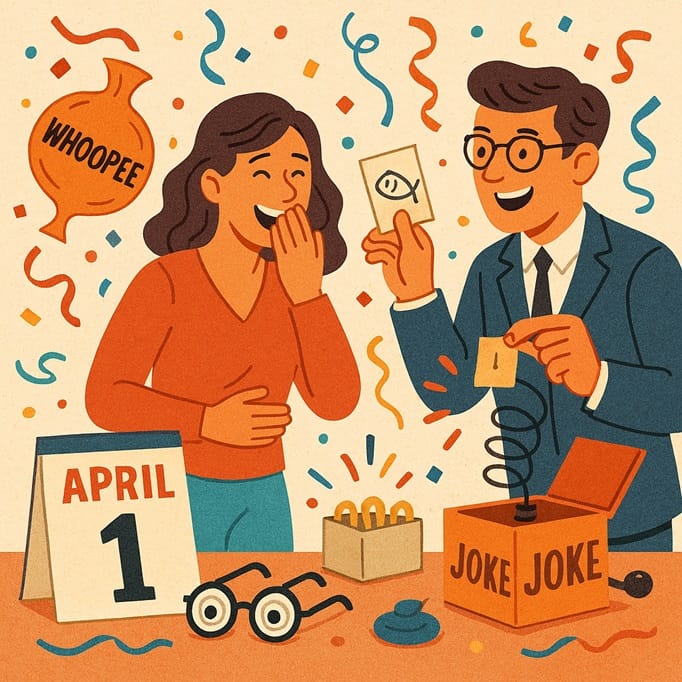April Fools’ Day
Every year on April 1st, countless people worldwide delight in playing practical jokes on friends, family, and colleagues. But where did April Fools' Day begin, and why has this playful tradition endured through centuries?
Every year on April 1st, countless people worldwide delight in playing practical jokes on friends, family, and colleagues. But where did April Fools' Day begin, and why has this playful tradition endured through centuries?

Every April 1st, a curious tradition unfolds across cultures and continents. Newspapers publish whimsical, fictitious stories; people delight in crafting clever hoaxes; and social media buzzes with playful misdirection. But despite being so widely celebrated, the true origins of April Fools’ Day remain surprisingly elusive.
Let’s explore the fascinating history behind this annual day of pranks, jokes, and lighthearted mischief.
The exact origin of April Fools' Day is unclear, but historians propose several compelling theories that span centuries and cultures:
The most widely accepted historical theory connects April Fools’ Day to the calendar reform in 1582, when Pope Gregory XIII introduced the Gregorian calendar. Previously, New Year’s Day was celebrated around April 1st, marking the vernal equinox and the start of spring.
When the new calendar moved the New Year to January 1st, those who continued to celebrate the older tradition around April 1st were mocked as “fools.” Playful practical jokes became commonplace, eventually evolving into an annual custom.
Another theory points to ancient Roman celebrations, notably the festival of Hilaria, held on March 25. Marking the vernal equinox, Hilaria involved dressing in disguises, playing practical jokes, and general revelry. While this festival did not directly take place on April 1st, the spirit of playful trickery may have influenced later customs.
In Britain, historians suggest connections to older Celtic traditions marking the end of winter and beginning of spring. Pranks and foolery symbolized the unpredictability of nature, where April's weather often fools people with sudden and surprising changes.
Although the origins remain uncertain, the tradition itself has spread globally, evolving uniquely across cultures:
Some April Fools’ pranks have achieved legendary status:
April Fools' Day endures because it satisfies universal human desires—laughter, connection, and the simple joy of shared experiences. It offers:
April Fools’ Day persists not simply because of tradition but because it connects deeply with something fundamentally human: the playful, mischievous, and joyful parts of ourselves. Whether its origins lie in ancient festivals, calendar changes, or simply the human desire to laugh together, April 1st continues to remind us of the importance of humor, joy, and playful human connection.
So, this April 1st, remember to laugh heartily, embrace the fun, and perhaps even orchestrate a clever prank yourself—after all, it's tradition!
Tags: #April 1, #Fun, #Pranks, #Traditions, #Humor, #Peter Comrie